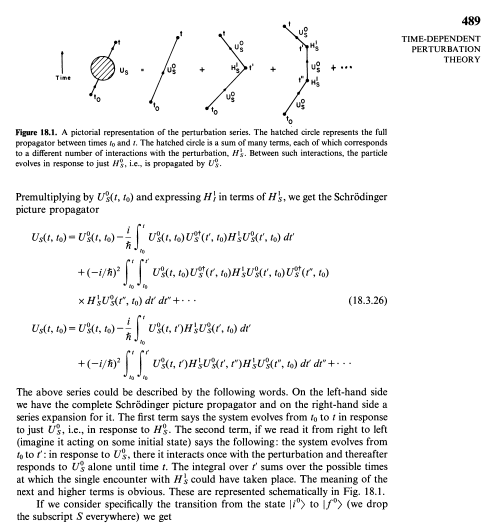There seems to be a formalism of quantum mechanics perturbation that involve something like Feynman diagrams. The advantage is that contrary to the complicated formulas in standard texts, this formalism is intuitive and takes almost zero effort to remember (to arbitrary orders).
For example, consider a two level atom $\{|g\rangle, |e\rangle\}$ coupled to an external ac electric field of frequency $\omega$. Denote the perturbation by $\hat V$, with nonzero matrix element $\langle e|\hat V |g\rangle$.
Then the second order energy correction reads $$E^{(2)} = \langle e|\hat V |g\rangle\frac{1}{\omega_g - \omega_e +\omega} \langle g|\hat V |e\rangle + \langle e|\hat V |g\rangle\frac{1}{\omega_g - \omega_e -\omega} \langle g|\hat V |e\rangle $$ where the first term corresponds to the process absorb a photon then emit a photon while the second process is emit a photon then absorb a photon.
Does anybody know the name of this formalism? And why it is equivalent to the formalism found in standard texts?

